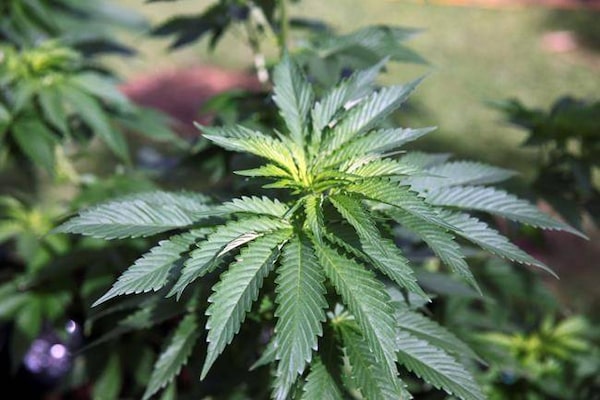
Broken Coast Cannabis Ltd., one of the first commercial growers given a licence by Health Canada in 2014, is recalling three batches of dried cannabis sold during the second half of last year.Marina Riker/The Associated Press
A Vancouver Island medical-marijuana producer has recalled products sold last year after a spot test of its supply by Health Canada showed two pesticides present in a sample of cannabis oil.
The recall announced Thursday stems from a crackdown by the federal department in March after months of product recalls dogged the medical-cannabis industry, which is set to make billions of dollars once Ottawa legalizes the drug for recreational use.
Broken Coast Cannabis Ltd., one of the first commercial growers given a licence by Health Canada in 2014, is recalling three batches of dried cannabis sold during the second half of last year.
Investigation: Mysterious symptoms and medical marijuana: patients are looking for answers
The federal agency stated that no patients have reported getting sick from Broken Coast products and, in the recall notice, said the contaminants are unlikely to cause any adverse health consequences. However, the Globe recently profiled several medical-cannabis patients who faced extensive health problems they say were brought on by smoking tainted products sold by another grower subject to a similar recall.
This new recall comes after federal inspectors visited in March and took a random sample of cannabis oil – which the company had been licensed to produce but not yet sell to patients. When the test results for that sample came back in July, Health Canada found trace amounts of two banned pesticides, myclobutanil and spinosad, according to a recall noticed posted to the department's site Thursday. Inspectors then went back and took samples of dried cannabis leaves from the company's Ladysmith, B.C., production site and found myclobutanil – whose manufacturer, Dow AgroSciences, does not consider safe to use on plants such as cannabis.
Broken Coast representatives did not return a phone call or e-mails requesting comment Thursday.
Jonathan Zaid, head of the patient advocacy group Canadians for Fair Access to Medical Marijuana, said the average patient consumes their medicine within a month of purchasing it and anyone who bought the cannabis in question will have likely used it by now.
Still, he said Thursday's announcement once again shows the federal government's testing regime is working, albeit slowly. However, there is a need to improve government oversight and quality control of the country's 50-odd licensed growers, Mr. Zaid said.
"From a patient's perspective, it's concerning if there's any unauthorized substances found in cannabis. Patients are using this as a medicine so it needs to be safe and reliable," he said. "At the same time, it is good to see that the recalls can happen because it shows accountability within the system.
"But, obviously, we'd like to see it happen much sooner so that patients haven't already consumed product and that testing is done on a much more pro-active basis."
Health Canada is asking patients who may be affected by the recall to stop using the cannabis, call the company as well as contact the federal department to file an Adverse Reaction Report, which is how the government tracks problems with prescription drugs.
The Globe recently talked to more than a dozen patients subject to a February recall of licensed producer Organigram's cannabis who say nothing happens when you file such a report, as they are usually just anecdotal filings that are used for data-keeping purposes.
Those patients believe they have been affected by exposure to myclobutanil, a chemical used to kill mildew, and bifenazate, an insecticide prohibited for use on certain types of plants, including cannabis. When inhaled, myclobutanil enters the bloodstream directly through the lungs, without being broken down by the digestive system. No studies have been done to determine whether it is safe to be smoked, and Dow AgroSciences strictly warns against inhalation.
With a report from Grant Robertson
 Mike Hager
Mike Hager